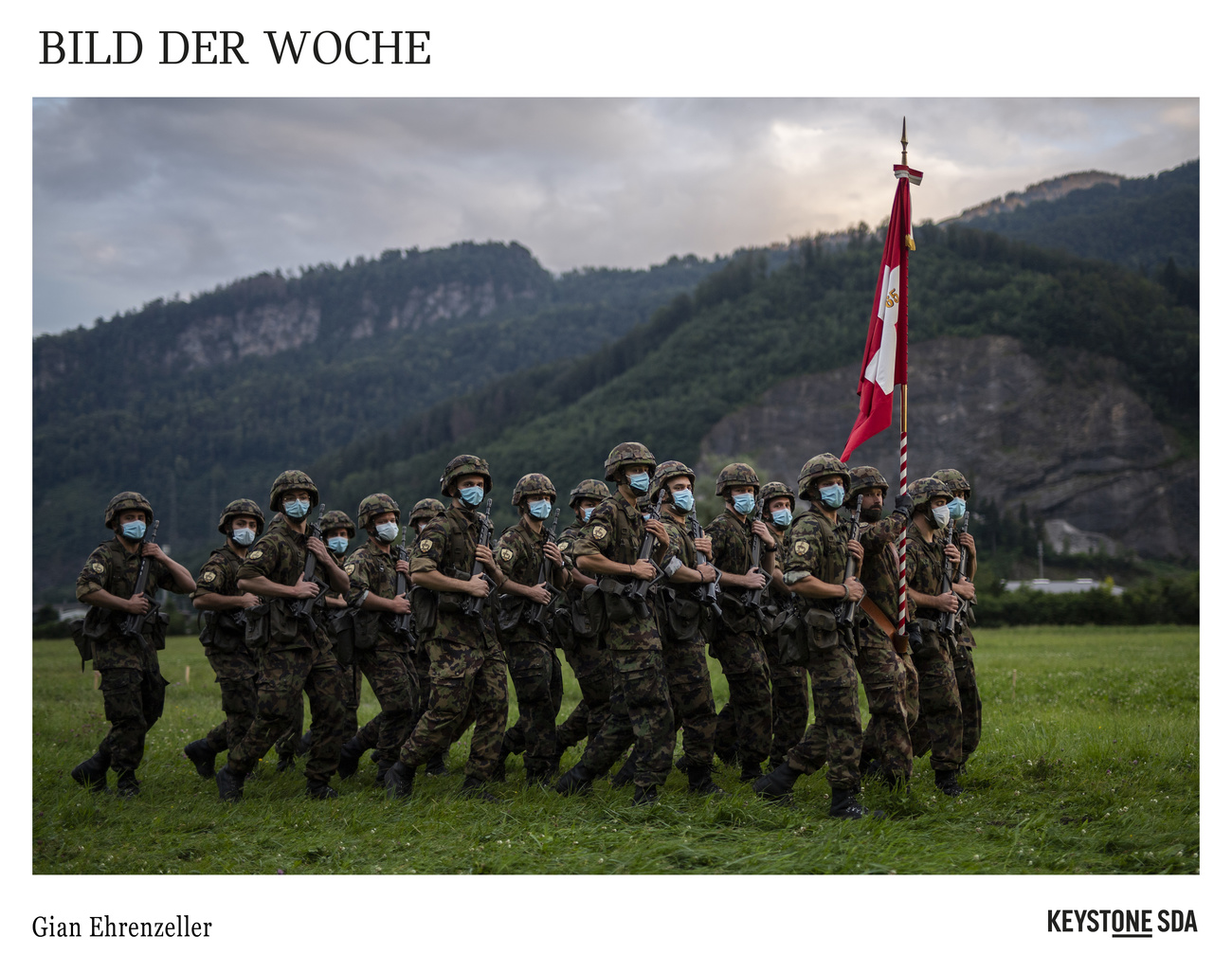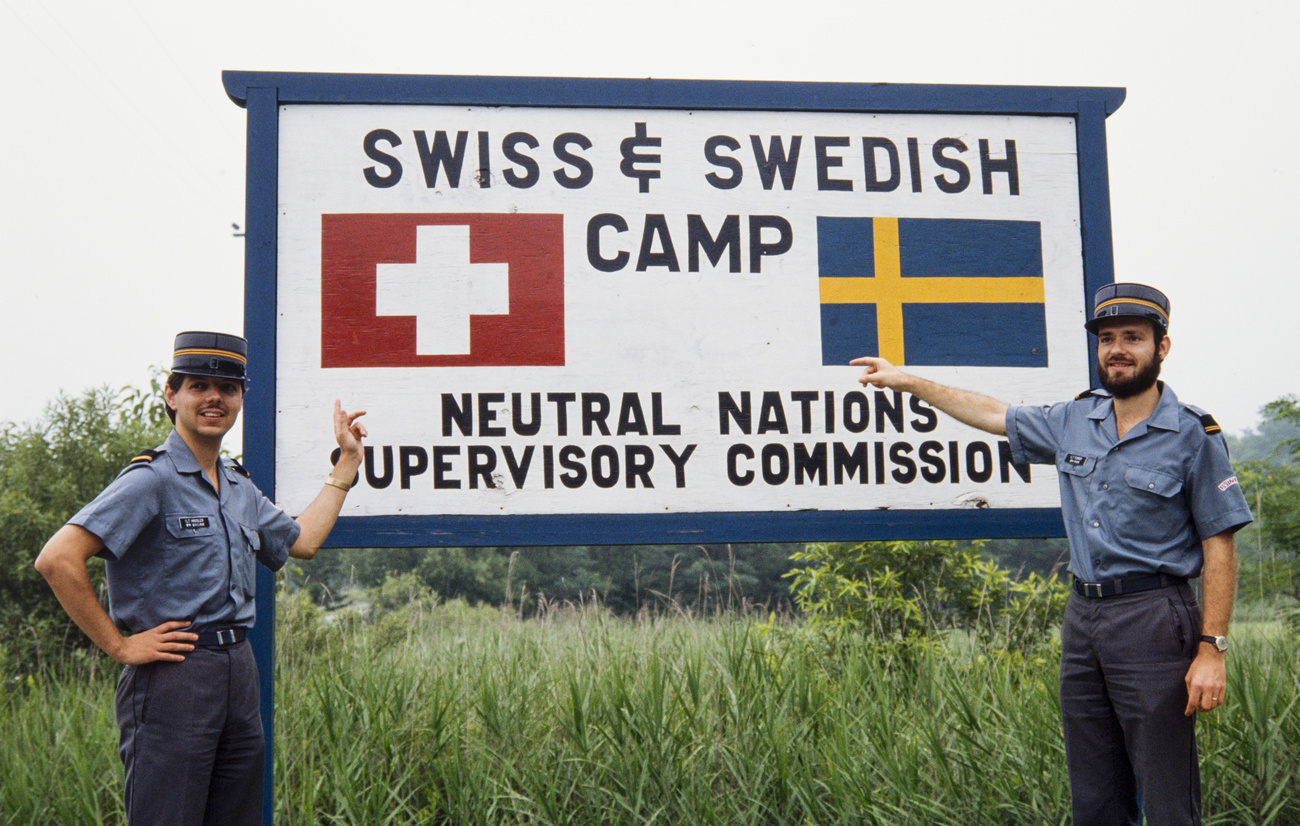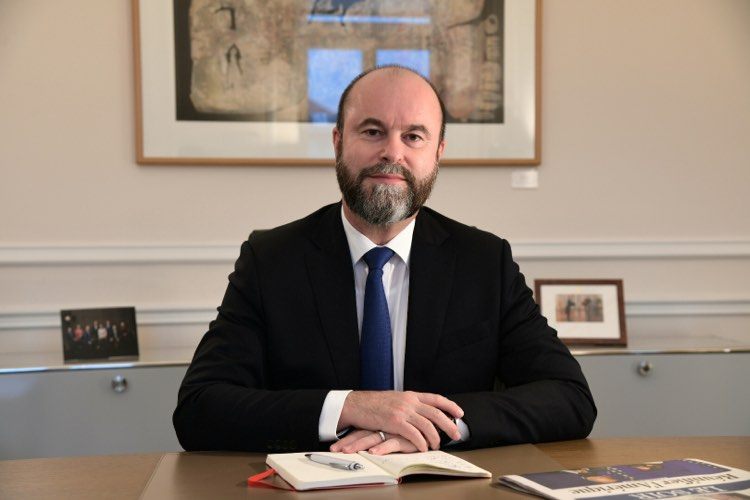
Switzerland will remain neutral – until it’s attacked

Switzerland is a neutral country, but it has been part of security cooperation pacts with NATO and the European Union for many years. How does this sit with neutrality? And why does Switzerland seek such partnerships?
Switzerland is neutral, which means it doesn’t take part in armed conflicts and doesn’t support any warring party. The mercenary army, which used to be an important industry in Switzerland well into the 18th century, is now taboo.
However, Switzerland no longer sees neutrality as blindly going it alone. This is why for some time it has maintained military partnerships with Western defence alliance NATO and with its neighbouring countries.
Since 1953 Switzerland has participated in military peacekeeping activities which are now conducted under the leadership of NATO, the EU and the UN. It has been a member of the Organization for Security and Co-operation in Europe (OSCE) since 1975.
In 1996 Switzerland joined NATO’s Partnership for Peace (PfP) programme, and in 2019 it became a member of NATO’s Cooperative Cyber Defence Centre of Excellence (CCDCOE). In 2012 Switzerland and the European Defence Agency (EDA) signed a Framework for Cooperation in the field of armaments cooperation and military training.
Switzerland is currently assessing whether to participate in individual PESCO projects. PESCO is the Permanent Structured Cooperation of EU member states which want to be engaged in the Common Security and Defence Policy. PESCO is also termed a “Military Schengen” as it is inspired by the EU’s Schengen Area with the aim to create a European army. According to the Swiss Army, Switzerland’s plan to participate is still at early stages.
The European Union doesn’t have a common army. But as part of PESCO (Permanent Structured Cooperation) some EU countries maintain a military alliance. So far, these alliances have consisted of rather loose armament or educational projects.
PESCO has recently allowed non-member states to participate in its projects. So far, Canada, Norway and the US have taken part.
Switzerland is also looking into joining several PESCO projects. “At the moment Switzerland is particularly interested in cyber projects,” says defence ministry spokeswoman Carolina Bohren.
The ministry says such cooperation would not come with any obligations that would compromise Swiss neutrality.
“Deploying troops would never be an issue with PESCO,” Defence Minister Viola Amherd said last year. “Swiss participation would therefore not call into question the principle of neutrality.”

More
Russia’s war revives ‘neutrality’ debate
Cooperation with NATO
At the end of the Cold War NATO proposed a collaboration with the former member states of the Warsaw Pact – its previous enemy. In 1994 the Partnership for Peace (PfP) was established to enable cooperation with partner countries who were not members of NATO.
“After the Cold War Switzerland drew closer to NATO through its involvement in the looser Partnership for Peace programme,” says Lea Schaad, a researcher at the federal technology institute ETH Zurich, who studies security issues. She said the PfP programme was attractive for both sides at a time when tensions were easing and NATO was able to pursue goals beyond collective defence.

More
Will Switzerland ever join NATO?
The defence ministry sees no problem with Partnership for Peace. It says the aim of the programme is to carry out military cooperation with other states. As this partnership doesn’t include a legal commitment or automatic reactions, it is compatible with Swiss neutrality, it explains.
Other neutral states such as Finland, Ireland, Malta, Austria and Sweden also take part in the Partnership for Peace. Since PfP is explicitly not a defence alliance and doesn’t come with an obligation to provide assistance, it does not compromise neutrality. Sweden, Finland, Austria and Ireland cooperate even more closely with NATO than Switzerland does.
Schaad has noticed signs that the relationship between Switzerland and NATO is cooling. “Since the 9/11 terror attacks as well as Russia’s annexation of Crimea in 2014, Swiss interests and NATO’s interests have diverged,” she says.
Since the principle of collective defence is back on NATO’s agenda, Schaad says membership has become less attractive for Switzerland. “Switzerland doesn’t want to step into a grey zone when it comes to neutrality,” she says.
Issue of membership
Russia’s invasion of Ukraine has underlined how crucial a country’s membership of NATO is. If Ukraine were a NATO member, NATO would be obliged to provide assistance and join the war – which could have deterred Russia from invading in the first place.
In neutral EU countries such as Ireland, Austria, Sweden and Finland, the war in Ukraine has rekindled the debate about moving closer to NATO or even becoming a member. But Swiss membership of NATO is out of the question, according to the defence ministry.
“NATO membership is not compatible with Swiss neutrality,” says spokeswoman Carolina Bohren.
More
Finland and Sweden are more relaxed about their neutrality and describe themselves as “non-aligned”. What further distinguishes Switzerland from Sweden and Finland is its geographical location in the heart of Europe. It’s hard to believe any country would attack only Switzerland.
“If Switzerland were the subject of an armed attack, neutrality would be null and void,” Bohren says. Switzerland would not only be allowed to defend itself militarily, it could also join forces with other countries, for example with neighbouring states. “Switzerland wants to safeguard this leeway,” she says.
This explains why the Alpine country is edging closer to NATO and PESCO. The Swiss Army considers such cooperation beneficial as its purpose is to “practise military interoperability with our neighbouring states”.
So Switzerland is training and getting ready for a crisis, but until it happens, it will remain strictly neutral.
(Translated from German by Billi Bierling)

More
‘Swiss neutrality is one of the foundations of our partnership with NATO’

In compliance with the JTI standards
More: SWI swissinfo.ch certified by the Journalism Trust Initiative

































You can find an overview of ongoing debates with our journalists here . Please join us!
If you want to start a conversation about a topic raised in this article or want to report factual errors, email us at english@swissinfo.ch.